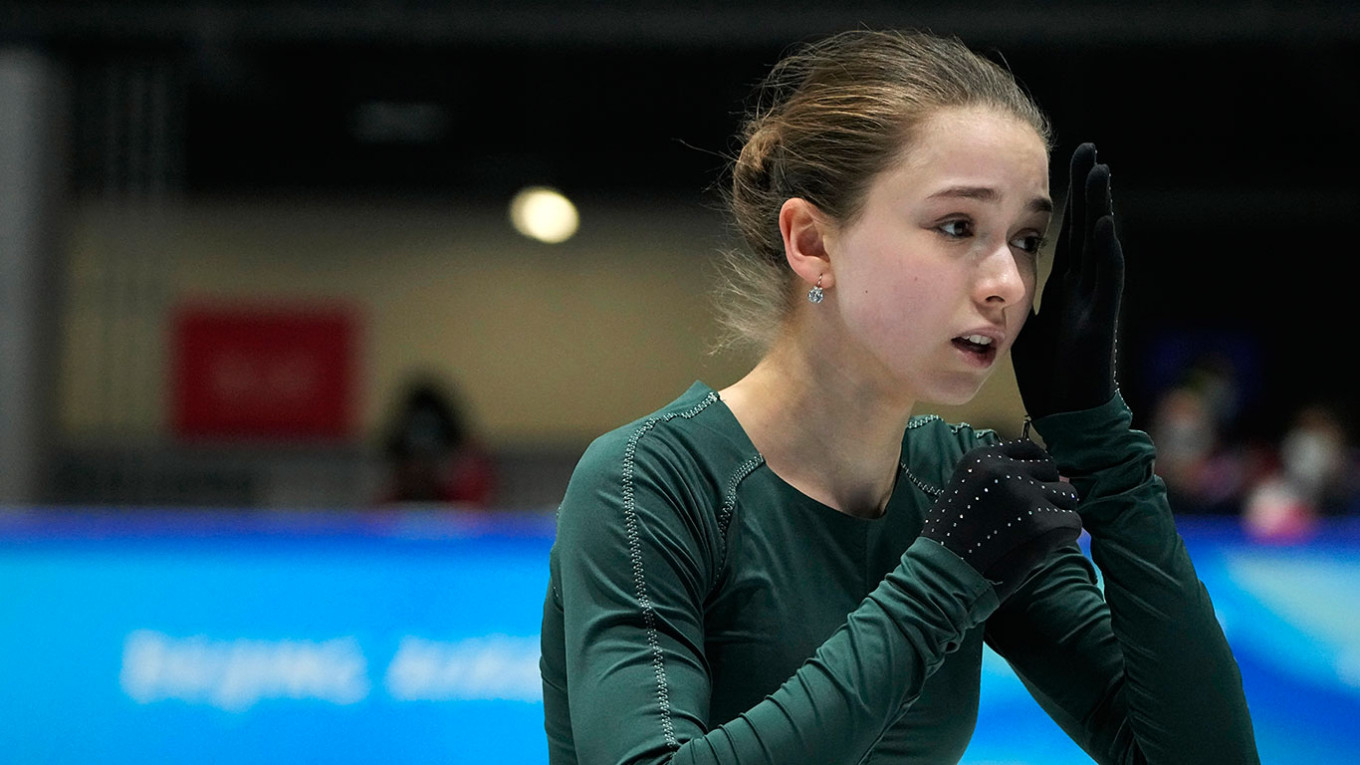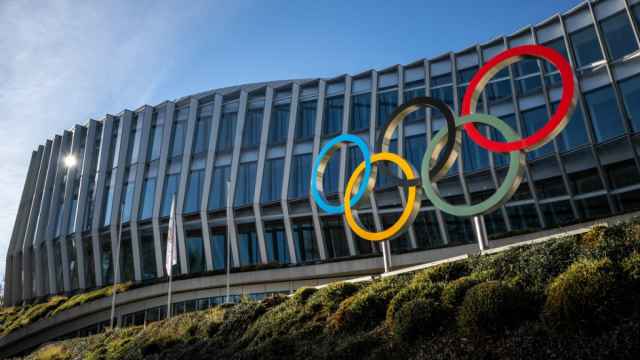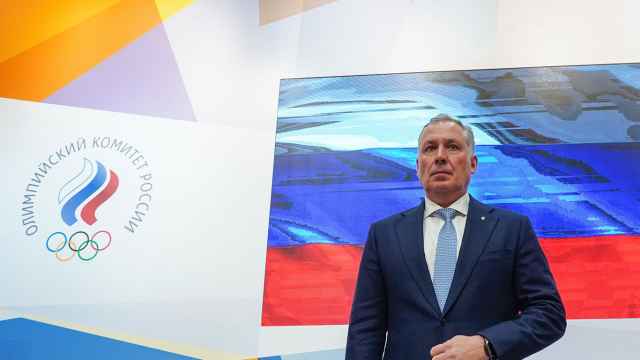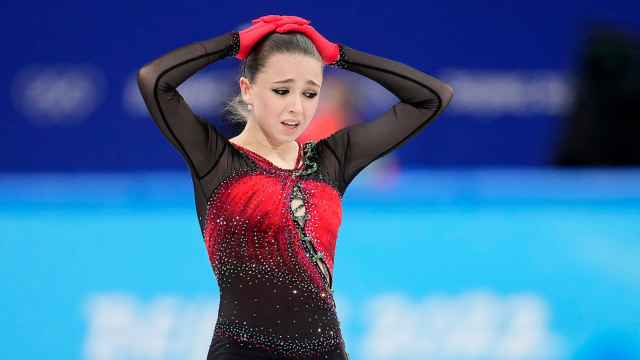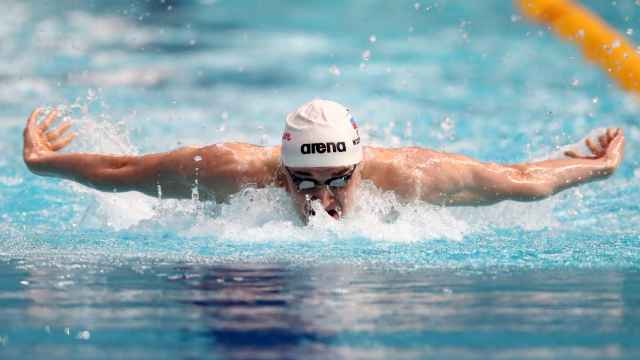The 15-year-old figure skating star Kamila Valieva, who led Russia to team gold at the Beijing Olympics this week, tested positive for a banned heart medication before the Games, Russian media have reported.
The positive test could cost Russia the team gold and also threatens Valieva's participation in the individual event that starts on Tuesday.
Russian athletes are competing in the Beijing Games as the Russian Olympic Committee (ROC) after the country was banned because of a massive state-sponsored doping scheme at the 2014 Sochi Olympics.
The sample in question was obtained before Valieva won the European championship last month, the RBC newspaper reported late Wednesday.
The drug detected is trimetazidine, a metabolic agent that is prescribed for the treatment of angina and vertigo, according to Kommersant newspaper.
It is banned by the World Anti-Doping Agency because it can increase blood flow efficiency and help endurance.
The reports said the test result was the reason that the team medals ceremony was removed from its scheduled slot on Tuesday.
The Russians won the gold medal in the team competition with the United States taking silver and Japan bronze, but the ceremony did not take place as planned.
International Olympic Committee spokesman Mark Adams said on Thursday an "active legal case" was under way concerning the medal ceremony and so he could not comment on the reports.
He said claims that the case concerned doping were "speculation."
"We had a situation arise yesterday that has all sorts of implications," he added.
Asked how long the athletes in the team competition would have to wait to receive their medals, Adams said: "It depends on the legal process and I would imagine everyone is working as quickly as they can.
"We understand for the athletes involved (in the ceremony) that they want to see this come to a good outcome."
In Moscow, Kremlin spokesman Dmitry Peskov dismissed the speculation.
"The scandal broke out not at the Olympics but around the Olympics, and among those who did not have the proper information — as always," he told reporters.
"The only source here can and should be the IOC," he said.
"We wish our athletes, including Valieva, only gold medals."
A Message from The Moscow Times:
Dear readers,
We are facing unprecedented challenges. Russia's Prosecutor General's Office has designated The Moscow Times as an "undesirable" organization, criminalizing our work and putting our staff at risk of prosecution. This follows our earlier unjust labeling as a "foreign agent."
These actions are direct attempts to silence independent journalism in Russia. The authorities claim our work "discredits the decisions of the Russian leadership." We see things differently: we strive to provide accurate, unbiased reporting on Russia.
We, the journalists of The Moscow Times, refuse to be silenced. But to continue our work, we need your help.
Your support, no matter how small, makes a world of difference. If you can, please support us monthly starting from just $2. It's quick to set up, and every contribution makes a significant impact.
By supporting The Moscow Times, you're defending open, independent journalism in the face of repression. Thank you for standing with us.
Remind me later.


